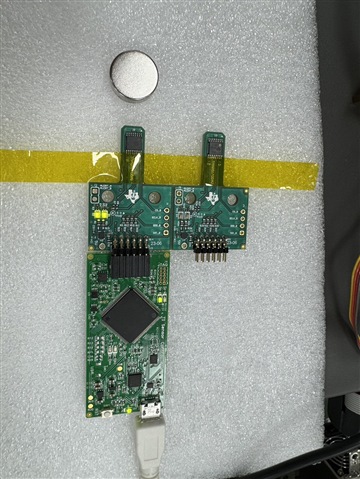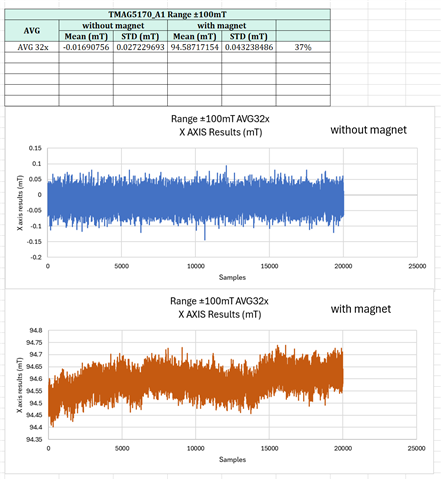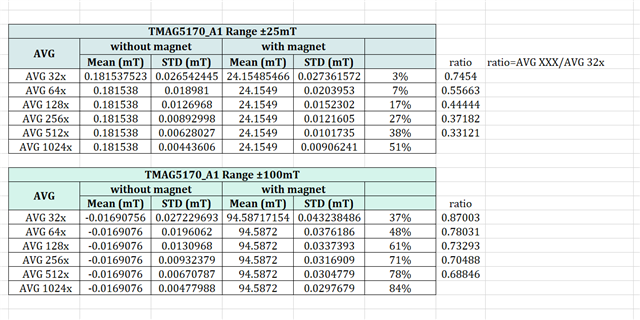

Hi
I found that when measuring TMAG5170 samples, the noise increases as the external magnetic field gets larger.
I have no idea why???
Can anyone help me?
thank you
This thread has been locked.
If you have a related question, please click the "Ask a related question" button in the top right corner. The newly created question will be automatically linked to this question.


Hi
I found that when measuring TMAG5170 samples, the noise increases as the external magnetic field gets larger.
I have no idea why???
Can anyone help me?
thank you
Kang,
Welcome to E2E. Thanks for reaching out with your question. I believe the flicker noise can increase due to the increase in the applied field, and what you have reported here has remained within specifications. In order to further reduce this it would be possible to perform over-sampling at the MCU level. You might also achieve better results by enabling the XYZZYX pattern (or any pattern that repeats the channel of interest). This should double the total number of samples used in the conversion and drive noise even lower.
Typically when a magnetic field from a permanent magnet is this large, the amount of displacement needed to produce a shift in magnitude on the order of this noise would be quite small.
Thanks,
Scott
Thank you very much, Scott.
I'm curious about this characteristic, Why 1/f noise is incresed, when magnetic field is incresed. I would like to know the reason. What do you think?
Kang,
I don't think we have an exact answer for that, and it would likely involve a fairly lengthy investigation whether it is tied to the hall-effect element and its biasing or if the source is something in the signal chain.
Were you able to use the other sampling pattern to reduce your observed measurement?
Thanks,
Scott

I did the average in excel, the noise cannot be reduced well.
I am very curious about noise sources. In my understanding, the 1/f noise should be canceled by a spinning current.
Kang,
Thank you for your patience waiting for my response and your further details. Yesterday was a US holiday.
From your results, the extra averaging does successfully reduce the observed RMS noise by sqrt(n). For instance, you can observe that with a 4x increase from 32x to 128x that the RMS noise is reduced by about 1/2. If you are able to implement an increased averaging in your system then I would certainly recommend using this approach to bring the observed noised down further if this is limiting your application. The maximum amount of over-sampling you can apply will depend on how often you need your MCU to make decisions based on the result and how fast the magnet is moving.
The device does implement current spin, but I cannot comment on how this is implemented or provide more details of the inner workings of the device beyond what it published in the datasheet on a public forum.
Thanks,
Scott
The RMS noise is reduced by sqrt(n) only for no magnet, the rules will not exist when a large magnetic filed applies.
Although my question still exists, thank you very much, Scottt